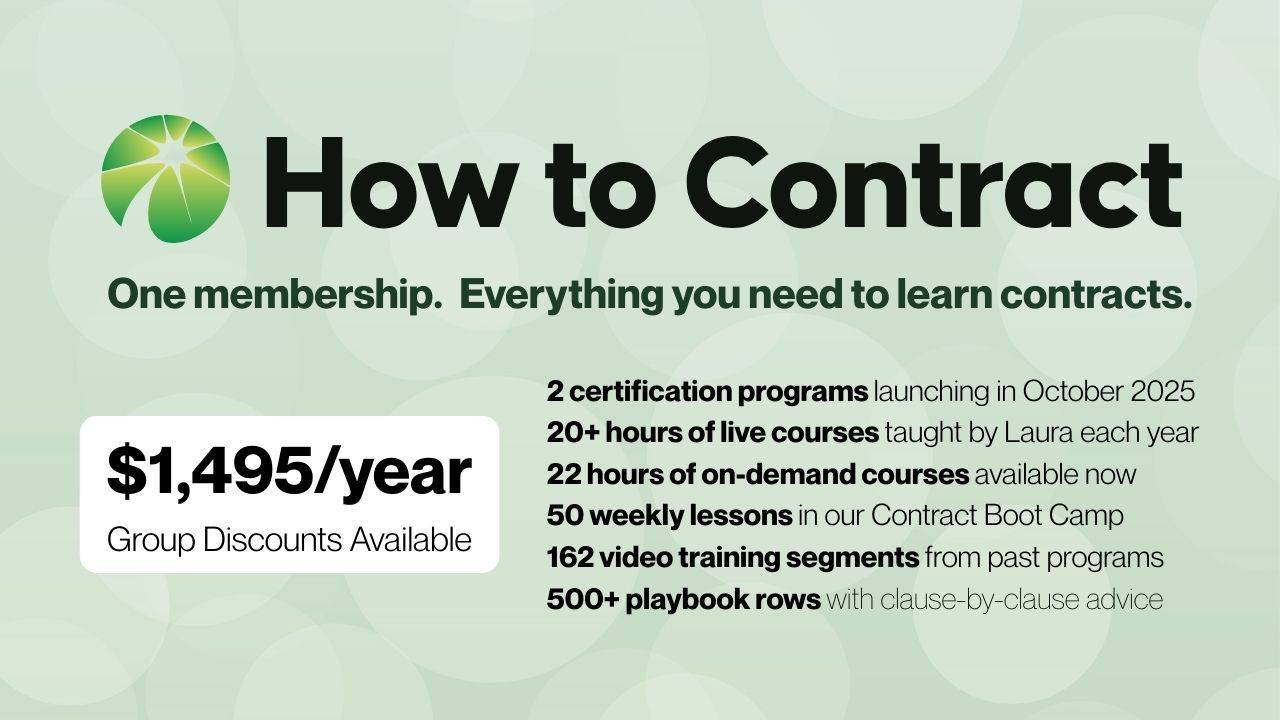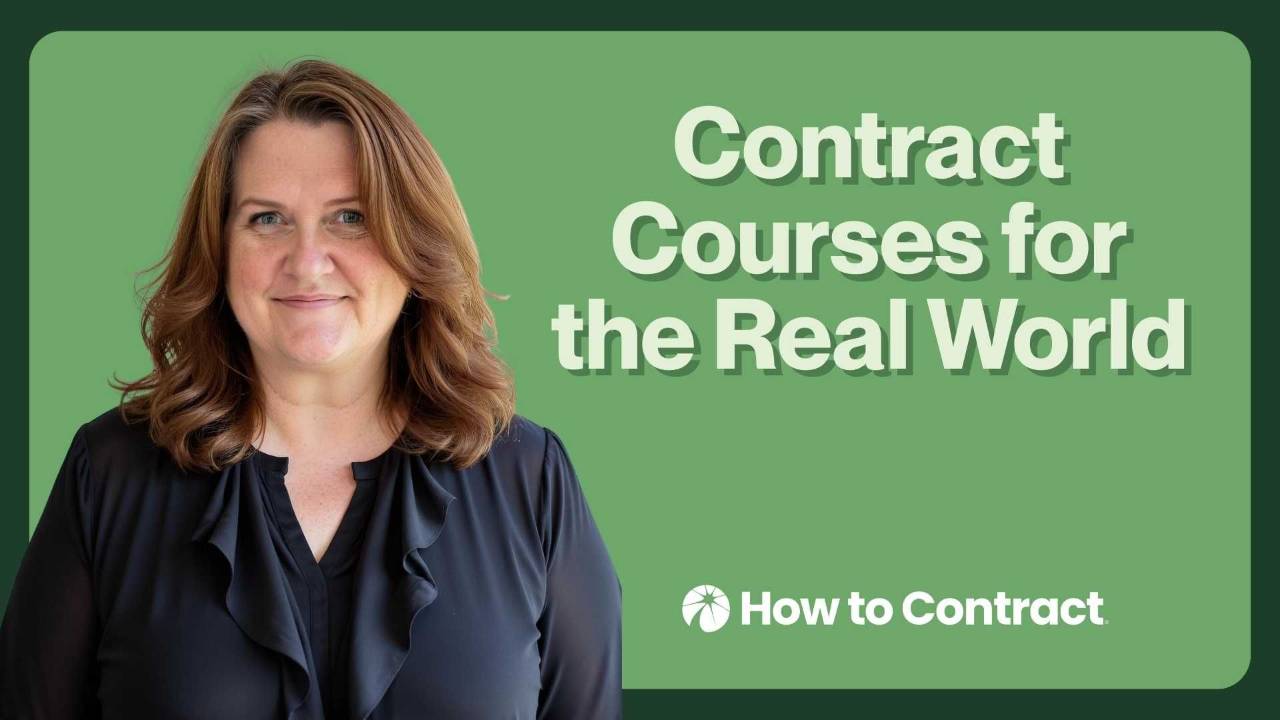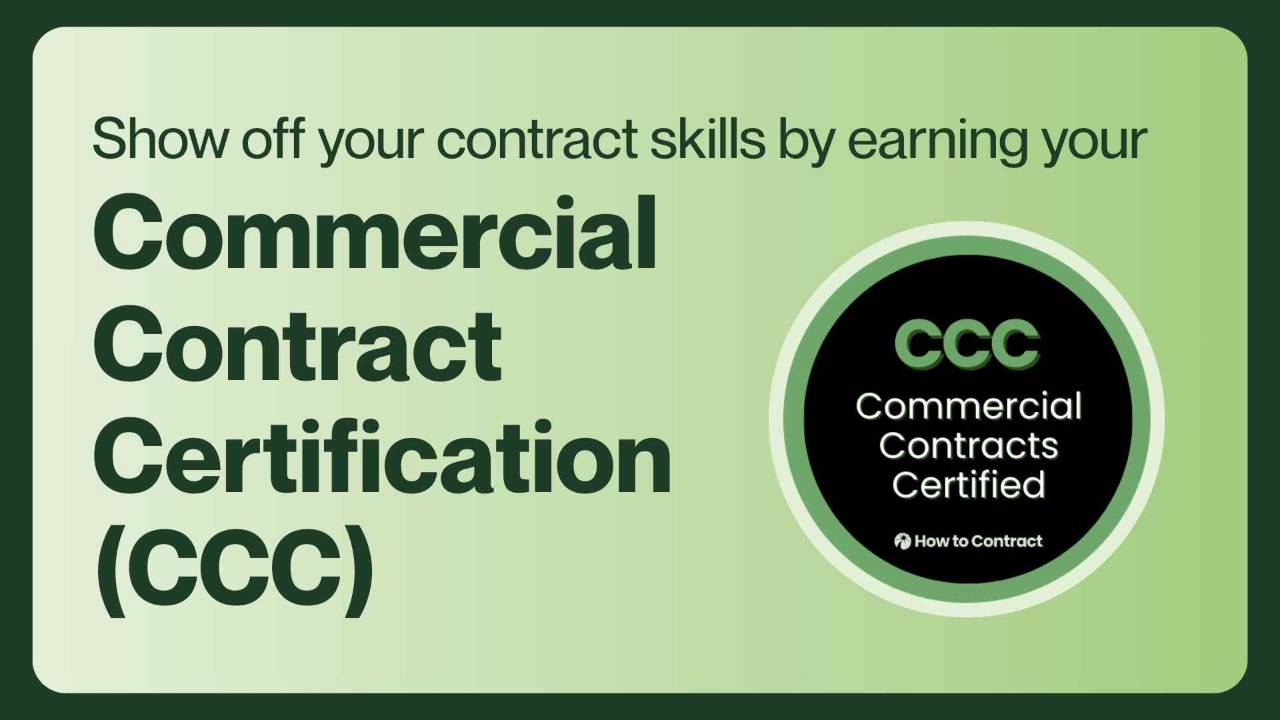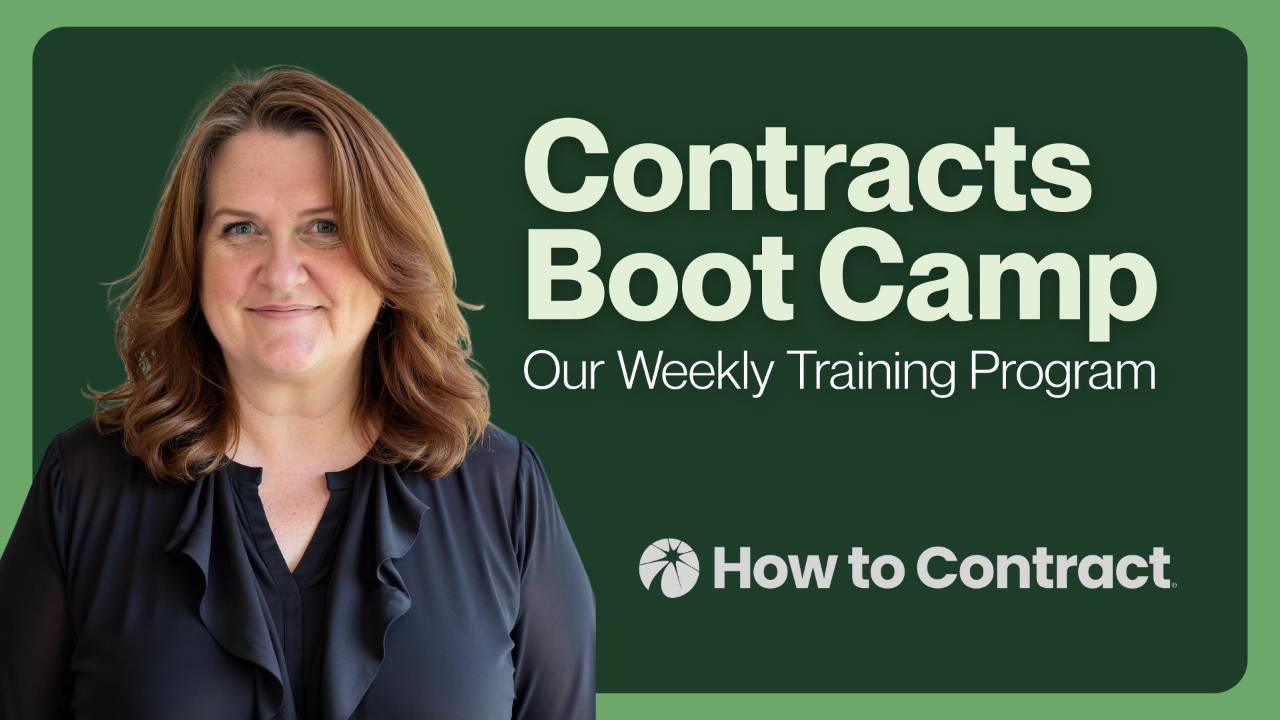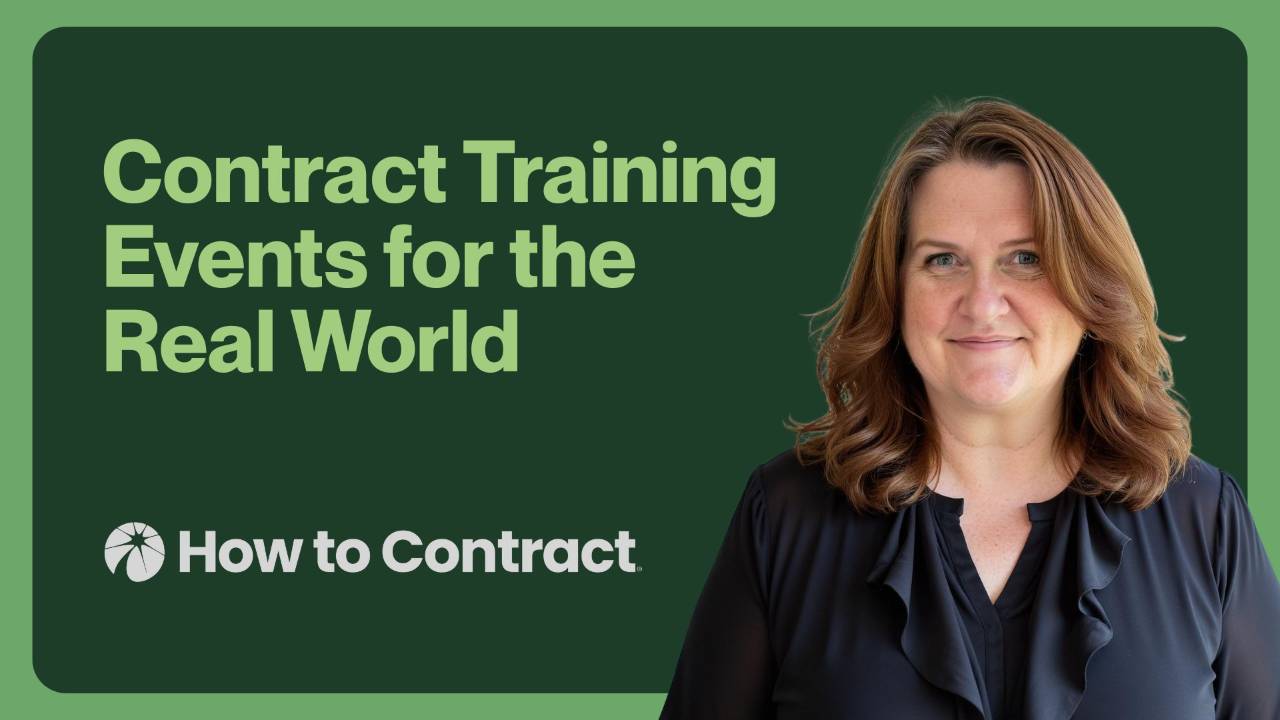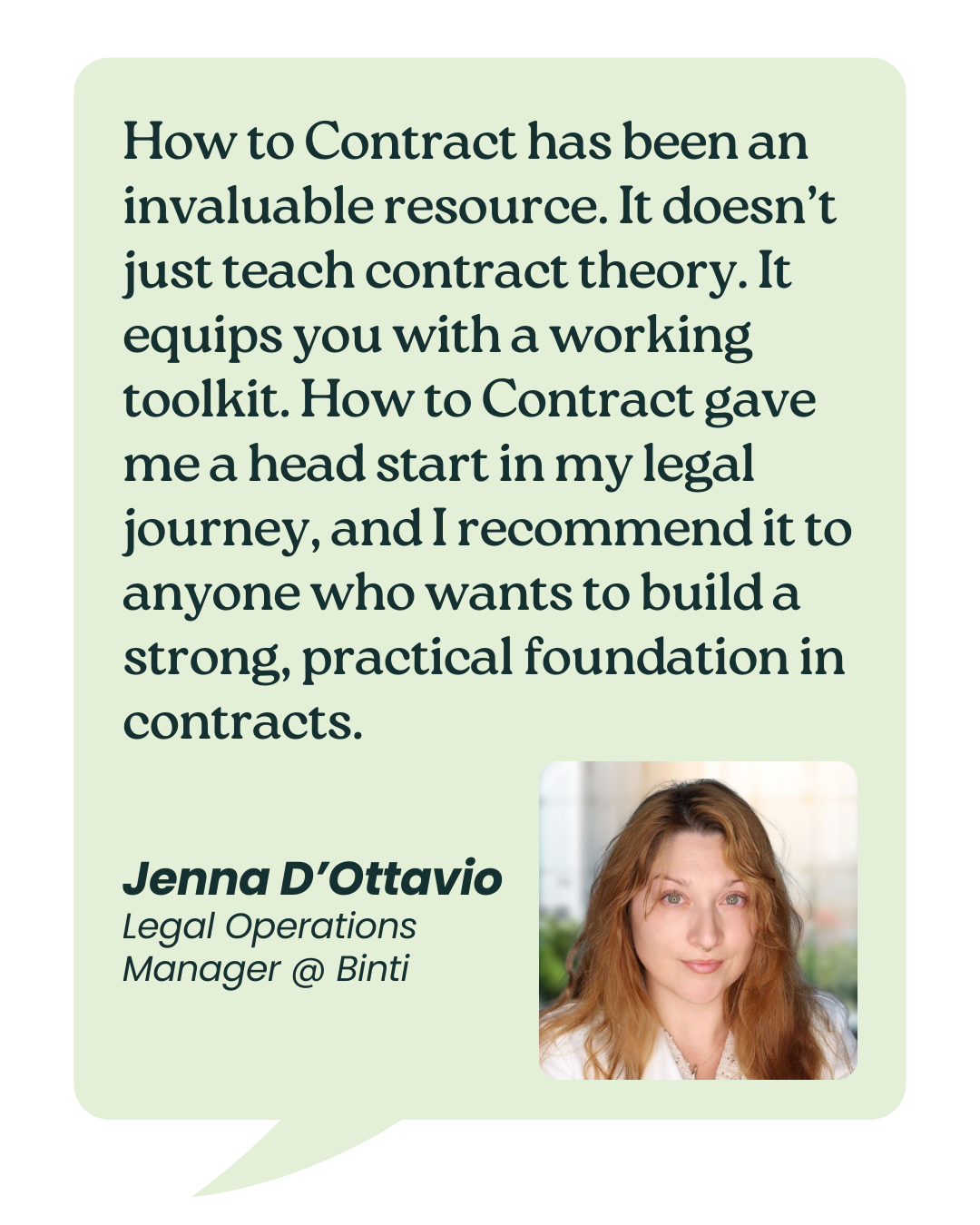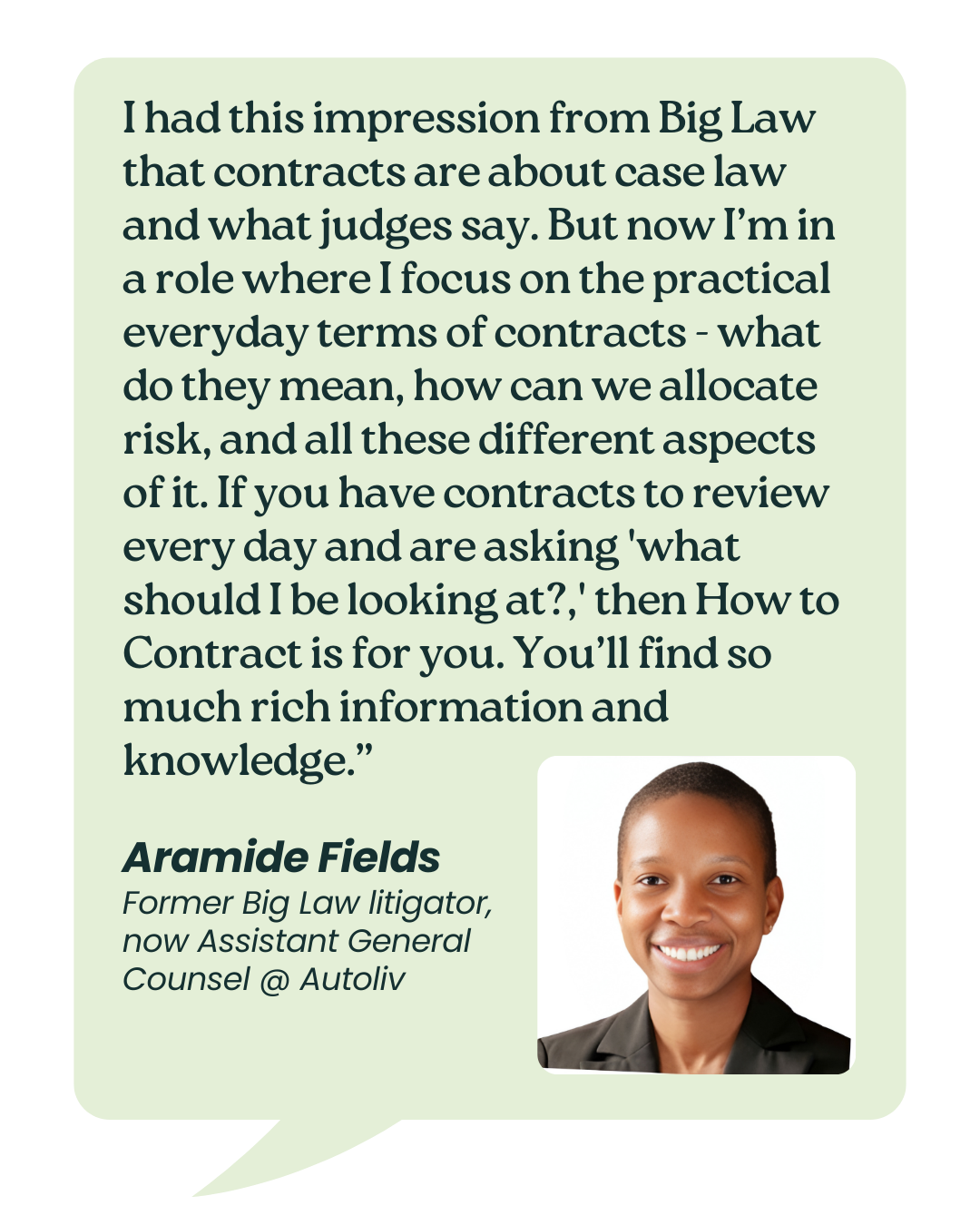
How I Contract: An Interview With Katharyn Owen, Associate General Counsel at Plainview
We interviewed Katharyn Owen, Associate General Counsel at Plainview as part of our How I Contract series.
The Journey to a Career in Contracts
Can you tell us a story about what brought you to this specific career path? How long have you been working with contracts?
I have been an attorney for 16 years now, but I did not start out strictly in contracts.
I also didn’t intend to attend law school until a couple of years out of undergrad, working as an engineer.
I have always been a reader, so when my dad said “Have you thought about law school? Lawyers read a lot,” I signed up for the LSAT and immediately started the law school journey.
I started in pure patent practice right out of law school, which was very concentrated writing, drafting patent applications, and responding to USPTO office actions.
Needing to move to Florida in 2010, I branched out into “general business” practice with a side of technology — small-scale M&A, one-off software development agreements, drafting online terms and privacy policies for small businesses, patent and trademark applications, and also commercial real estate transactions.
I transitioned in-house in 2015 to a telecom software company, where I managed their IP portfolio but dove head first into contracts — customer, channel partner, and vendor. Now, at a project portfolio management software company, I continue to manage an IP portfolio but am also heavily involved in all the different types of contracts involved in developing and offering SaaS products, managing a team that supports the Americas regions.
Essential First Steps When Working with Contracts
Let’s move to the topic we all love — contracts. What should you do on day one of working with contracts? What shouldn’t you do?
Always read through a whole contract first before starting to redline.
It is so easy to jump right into modifying an agreement to later see the same subject matter represented in a way that you would not necessarily have ordered it.
Something I would not do is delete entire sections of an agreement to replace with “our” boilerplate language on the same topic.
Building a Successful Career in Contract Law
Strategies for Learning the Business You Represent
What is the best way to learn the business you represent? Could you please share specific steps?
In software, learning how to use the software is a must, and learning how the software functions is a bonus.
Learning functionality in addition to using makes me more knowledgeable when it comes to negotiating security terms and data processing agreements specifically. Being able to articulate my company’s position on more technical topics saves time in redlining and also in reducing the number of people who have to be involved in contract reviews and customer meetings.
I also attend regular sales and product management meetings to keep up with trends in the sales cycle (the biggest hurdles that customers are creating in the sales process) and also new developments in the offered products, which may affect the contracting process.
On the “legal” business side, I keep track of the redlines I commonly see, almost like a reverse clause library — so that if I consistently see redlines in the same section, for example, redlines to the warranties section.
I can work with my team in Legal but also the appropriate business teams to see if there are general changes that we should be making to our templates to address it or if we need to develop specific counter language for our clause library (to keep up with what contract risks the business can and cannot accept).
How can you add value as a new contract lawyer or professional working in-house?
Being willing to learn new drafting and negotiation techniques (with an eye towards understanding how things are done and how you can make them better), learning the templates, learning about what exposure the company is willing to take, and also being open to becoming “the house expert on [___]” even if it is not something you thought about before.
Having fresh perspectives on ways to create efficiencies is so important. Efficiencies can only be created if you understand the problems.
Building a Successful Career in Contract Law
What is the best strategy to build a successful career in contracts?
You need to put yourself out there as a problem solver — offer realistic ways to address run-of-the-mill problems, offer new and pragmatic perspectives to address larger problems and keep adding to your contracting skills and knowledge of your industry or business to show value in ways you can solve problems in contracts and through using contracts.
One of the best ways that I know to add value as a problem solver is knowing the right person or group to ask (or making the effort to find the right person or group) specific questions, to go right to the source to minimize time in getting a workable solution.
Top Skills for Contract Drafting and Negotiation
What are the top five skills you need to work on to become great at contract drafting and negotiation?
- Find joy in reading and writing sentences, sentence structure, and writing and rewriting in concise terms.
- Be willing to add comments to practically every redline you offer, it is helpful when it comes to discussing the agreement face-to-face with your internal teams and the other party.
- Understanding an agreement in the big picture — not just the four corners of the agreement itself, but how the agreement spreads out and impacts other aspects of the business and understanding your own role in that.
- That is okay to not have an answer immediately every time, that you are allowed to say “I need to look into this further, and I will get back to you,” or when discussing an agreement “I need to consider this further.” There is always going to be pressure to turn an agreement or close a deal quickly, but sometimes space to find information, make a rational decision, or come up with alternatives is also needed.
- Being consistent and reliable, and providing consistent and reliable work-product through both high-pressure times, like at the end of the quarter or fiscal year, and the rest of the year. Setting boundaries and expectations during non-pressure times, and maintaining those boundaries and expectations during high-pressure times, makes the overall contracting process so much easier.
New lawyers and professionals should be aware of too aggressively attacking another party’s template agreements when they are not fit for form specifically for their industry and going into meetings or calls with those parties with an adversarial mindset.
The point is to get to an agreement that represents an ongoing working relationship with the other party. Working with the other party to get to an agreeable meeting of the minds is so much easier than trading versions with nitpicky redlines and off-the-cuff comments.
I work with a lot of customer-provided contracts (yes, where customers are subscribing to our SaaS products, and want the deal on their paper, even if they are in a different industry). Many times I need to convert a software development of a general vendor agreement to a SaaS agreement. This involves a lot of redlining and convincing through comments on the scenario shift that is taking place with my redlines.
It is very easy to feel like the other party doesn’t understand your business at all and is trying to fit a round peg into a square opening. It is also very easy to want to take personal offense at the amount of work required.
What should you do after you made a mistake in a contract? Could you give an example of a specific wording you would use to inform others about that mistake?
I often provide a new version of redlines, with the comment, “Please disregard the prior version and work from this version, as the last version inadvertently contained some of my working notes.”
What is your #1 contract management tip? Why?
Time management.
I like to plan blocks of time for contract review, specifically the first few hours or last few hours of every day (where I do not look at my email and turn off messaging notifications).
This way, I can turn agreements quickly but not so quickly that I do not have time to read through the whole agreement first or time to think about the big picture with the agreement.
Tips for Effective Contract Management and Time Efficiency
What are the steps you can take to speed up working with contracts without sacrificing quality?
A few of my other answers to questions are combined here, as what I feel like I do the most is try to make the most efficient use of my time (and my team’s time) in all of the contract work that I do.
I like to have my “contract review time” scheduled daily, either first thing in the morning or at the end of the day, to block out distractions.
I also take the time to review the entire contract first before starting redlines or responding to comments to get the overall picture of the agreement.
I always reference my log of redlines I commonly see and the clause library for quick language to address common asks.
Lastly, if I am reviewing another party’s agreement, I have my company’s template open in a side-by-side window for quick reference.
What are the top three things contract lawyers and professionals need to pay attention to when working in a team?
- That everyone on a team has a different perspective, and those different perspectives should be valued. Most in-house teams are small and run lean, so every person on the team has to have different skills to contribute, and it is a waste of a resource to not make use of those different skills.
- Listening and learning from one another is key.
- That we are all just people trying to get through our day, sometimes we have more difficult days than others and vice versa, so be compassionate, considerate and understanding of the people who are willing to show up every day and contribute.
What is the one burning question you had when you started working with contracts and how would you answer it now?
Why was Contracts in law school so unlike what working in contracts like?
And to be honest, I do not know if I can answer this.
I understand in law school we were learning theory and principles, but there was no drafting practice, only analyzing case law in exams. Nothing is more humbling than understanding the concept of an arrangement that you are trying to capture in an agreement and still not knowing everything that needs to be in there to protect your client.
If you could give just one contract tip, what would that be?
Some agreements are difficult to read and understand.
If the agreement is hard to read, take a break and cut yourself some slack.
Read it in chunks, or if you have time, over multiple days.
And in reading through, keep mental notes on how you would write it better to learn from it if you were writing this agreement from scratch.
Thank you, Katharyn!
How to Contract's membership is designed to help you build real-world expertise with commercial contracts. Get access to our comprehensive system of live and on-demand courses, weekly lessons, detailed playbooks, and more. Join today!

